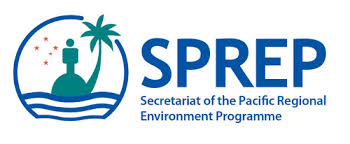Methodology & Sustainability

Methodology
To identify and prioritise countries’ needs the Pacific Hub will use the findings of GEF National Capacity Self Assessments aimed at identifying capacity needs to implement the UNCCD, CBD and UNFCCC. Through its on-going interactions with countries SPREP has also been able to obtain information on capacity building needs across the other MEAs. Further prioritisation of needs will be done as a routine and ongoing process through SPREP’s networks with country representatives and through the various coordination mechanisms already established in the region.
Synergies and complementary action will be developed with the Pacific ACP countries taking into consideration the GEF Pacific Alliance for Sustainability Program. The Pacific Hub will also provide an opportunity for co-financing. Where there are GEF-PAS projects that have similar or complementary activities or objectives, Pacific countries can identify or specify activities as co-financing for the GEF-PAS projects.
The Pacific Hub will be linked with other ongoing processes and initiatives related to the implementation of MEAs and the attainment of MDGs. These include the activities undertaken under the UN Development Assistance Framework (UNDAF) process.
MEA secretariats will be involved especially during the Inception Phase when priority capacity enhancement activities are chosen. UNEP will assist the Pacific Hub to consult and liaise with the secretariats’ capacity building units and personnel. The Pacific Hub may also request the staff of the MEA secretariats to undertake and provide capacity building services related to their respective MEAs.
For purposes of coordination and ownership of all parties, arrangements will be put in place for all Pacific ACP countries to identify and appoint officers who will be responsible for implementation and coordination at the national level. These officers will include the SPREP National Focal Points and Technical Focal Points for the various MEAs. This process will also involve other stakeholders in each country.
Building on experiences gained, the Pacific Hub will elaborate a Sustainability Action Plan based on the review and evaluation of activities. The Action Plan will include resource mobilisation and sustainable financing strategies.
The main constraint anticipated is the capacity of Pacific ACP States to effectively manage the scale and implement activities planned for the region.
Sustainability
The Pacific ACP countries are geographically spread out over a vast area of ocean and their relative capacities are a special challenge for planning and implementation. A dedicated coordinator, a well coordinated and integrated work plan, and an effective communication process to support interventions at the country level will be crucial to the success of the Pacific Hub. The high level of ownership by government and national stakeholders in Pacific ACP countries and their ability to lead and participate in the planned interventions, their commitment to inter-agency collaboration and coordination arrangements and commitment to planning and implementing sustainability strategies is equally essential. The mainstreaming of MEAs into national strategies, plans and processes while encouraging the participation and improving the capacity of national stakeholders will ensure the sustainability of activities. The extent to which MEAs are mainstreamed at the national level will therefore reflect the level of ownership and commitment by a wide range of stakeholders in the countries. Financial sustainability through mainstreaming will include: 1. A gradual increase in government funding for MEA-related activities; 2. Increased level of active participation by NGOs, the private sector, the scientific and educational institutions in MEA-related activities and decision-making processes; and 3. Increased number of stakeholder representatives trained in resource mobilization strategies resulting in increased number of fundable project proposals and increased level of donor support. Institutional sustainability will be improved through the identification and clarification of roles and responsibilities of national institutions and individuals linked to each MEA. This will be further supported by strengthening the capacities of these institutions and individuals to carry out their defined roles. National networks and collaboration will be promoted and established in order to ensure continuity of MEA implementation even when a particular official leaves an institution.
